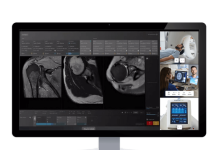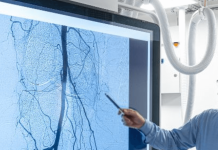SamanTree Medical has revealed that its Histolog scanner, a confocal laser microscope, significantly decreased breast-conserving surgery (BCS) reoperation rates by 67% as observed in the prospective SHIELD study.
The study of the imaging device demonstrated a reduction from 30% to 10%. It was conducted at St Vincenz Hospital, Paderborn, Germany.
Related: Protaryx Medical completes first-in-human trial of transseptal puncture device
In this study, 50 subjects who had invasive breast cancer and/or ductal carcinoma in situ (DCIS) were involved. The findings were benchmarked against the historical data of the POLARHIS study, which used standard intraoperative margin assessment techniques by the same surgical team at the same breast centre.
The device also identified positive margins accurately, with an 80.9% sensitivity and a 99.5% specificity.
These findings outperformed traditional intraoperative margin assessment techniques, which had a 17.4% combined sensitivity and 97.3% specificity.
In September, SamanTree Medical received 510(k) clearance from the US Food and Drug Administration (FDA) for the device.
SamanTree Medical CEO Olivier Delporte said: “These outstanding results underscore the potential of the Histolog scanner to enhance oncologic surgical outcomes significantly.
“By enabling real-time, high-resolution tissue microstructure assessments during BCS, our technology addresses a critical unmet need, reducing reoperation rates and improving patient outcomes.
“With the recent FDA clearance, we are pleased to make this groundbreaking technology available to surgeons throughout the US. The Histolog scanner sets a new standard for precision and care in oncologic surgery, marking a significant milestone in our mission to transform oncologic surgery and improve patient care globally.”
Developed in Switzerland, the scanner leverages enormous parallel confocal microscopy for imaging field enlargement. With the approval in place, SamanTree Medical is now set to accelerate its market entry in the US.




